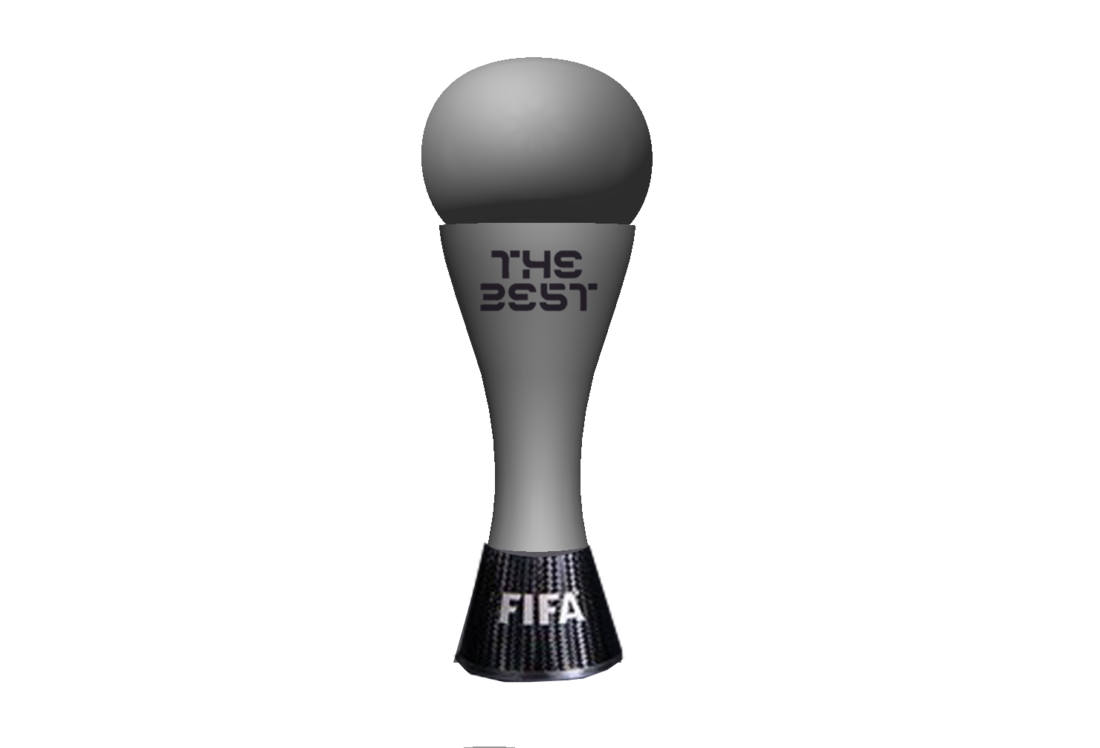The Best FIFA Men's Player
International football award From Wikipedia, the free encyclopedia
The Best FIFA Men's Player is an association football award presented annually by the sport's governing body, FIFA, since 2016, to honour the player deemed to have performed the best over the previous calendar year.[1] The award was formerly known as the FIFA World Player of the Year, which was merged with France Football's Ballon d'Or in 2010 to become the FIFA Ballon d'Or in a six-year partnership.[2]
| The Best FIFA Men's Player | |
|---|---|
 | |
| Date | 2016 |
| Presented by | FIFA |
| Formerly called | FIFA World Player of the Year (1991–2009) FIFA Ballon d'Or (2010–2015) |
| First award | 2016 |
| Current holder | Vinícius Júnior (1st award) |
| Most awards | Lionel Messi (3 awards) |
| Website | fifa.com |
History
Summarize
Perspective
In 2010, the FIFA World Player of the Year award combined with the Ballon d'Or to create the FIFA Ballon d'Or in a six-year partnership.[3] FIFA presided over the FIFA Ballon d'Or after agreeing to pay £13million for the merge of the two major player awards with France Football. The six editions of the FIFA Ballon d'Or were dominated by Lionel Messi and Cristiano Ronaldo, as part of their ongoing rivalry. In 2016, the Ballon d’Or again lost its "FIFA" tag and would be voted for exclusively by journalists, while the FIFA World Player of the Year award – which ran from 1991 to 2009 – was resurrected, this time as The Best FIFA Men's Player.[4]
According to reports, FIFA's decision not to renew the deal was made in order to improve the organization's strained relationship with England's FA. This was based on the fact the annual ceremony was held in Zürich – and new FIFA president Gianni Infantino wanted to move the next one to London.[citation needed]
The trophy was designed by Croatian artist Ana Barbić Katičić.[5]
Criteria and voting
The selection criteria for the players of the year are sporting performance, as well as general conduct on and off the pitch.
The votes are decided by media representatives, national team coaches, and national team captains. In October 2016, it was announced that the general public would also be allowed to vote. Each group has 25% of the overall vote.[6]
Winners
Wins by player
| Player | Winner | Runner-up | Third place |
|---|---|---|---|
| 3 (2019, 2022, 2023) | 3 (2016, 2017, 2021) | 1 (2020) | |
| 2 (2016, 2017) | 2 (2018, 2020) | 1 (2019) | |
| 2 (2020, 2021) | — | — | |
| 1 (2018) | — | — | |
| 1 (2024) | — | — | |
| — | 1 (2022) | 1 (2023) | |
| — | 1 (2019) | — | |
| — | 1 (2023) | — | |
| — | 1 (2024) | — | |
| — | — | 2 (2018, 2021) | |
| — | — | 1 (2016) | |
| — | — | 1 (2017) | |
| — | — | 1 (2022) | |
| — | — | 1 (2024) |
Wins by country
Wins by club
| Club | Players | Total |
|---|---|---|
| 3 | 4 | |
| 1 | 2 | |
| 1 | 1 | |
| 1 | 1 | |
| 1 | 1 |
FIFA Player of the Year (including predecessors)
| Players | FIFA World Player of the Year (1991–2009) |
FIFA Ballon d'Or (2010–2015) |
The Best FIFA Men's Player (2016–present) |
Total[7] |
|---|---|---|---|---|
| 1 | 4 | 3 | 8 | |
| 1 | 2 | 2 | 5 | |
| 3 | — | — | 3 | |
| 3 | — | — | 3 | |
| 2 | — | — | 2 | |
| — | — | 2 | 2 | |
| 1 | — | — | 1 | |
| 1 | — | — | 1 | |
| 1 | — | — | 1 | |
| 1 | — | — | 1 | |
| 1 | — | — | 1 | |
| 1 | — | — | 1 | |
| 1 | — | — | 1 | |
| 1 | — | — | 1 | |
| 1 | — | — | 1 | |
| — | — | 1 | 1 | |
| — | — | 1 | 1 |
See also
Notes
- Neymar was signed by Paris Saint-Germain from Barcelona midway through 2017.
- Cristiano Ronaldo was signed by Juventus from Real Madrid midway through 2018.
- Lionel Messi was signed by Paris Saint-Germain from Barcelona midway through 2021.
- Lionel Messi was signed by Inter Miami from Paris Saint-Germain midway through 2023.
- As per the Rules of Allocation (art. 12), Lionel Messi (Argentina) won the Award on the basis of the votes cast by the men's national-team captains.
References
External links
Wikiwand - on
Seamless Wikipedia browsing. On steroids.
